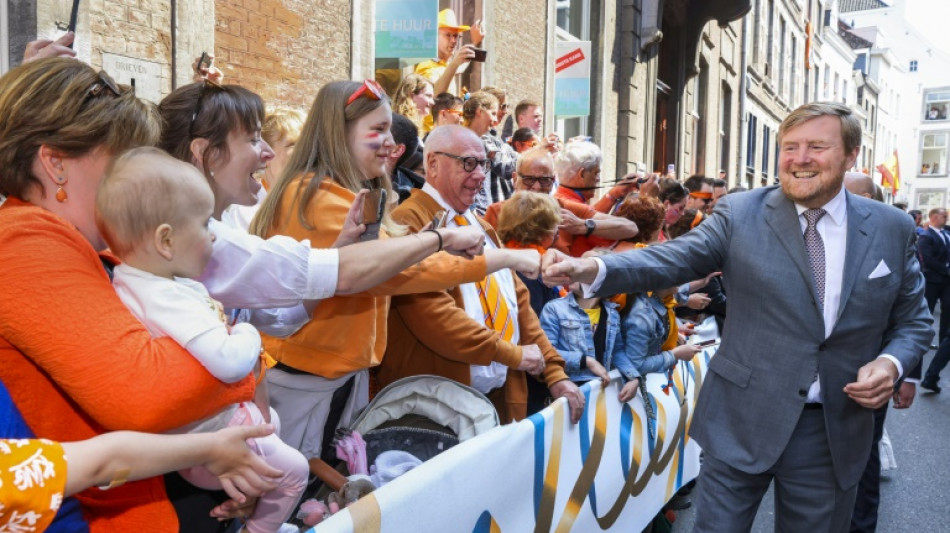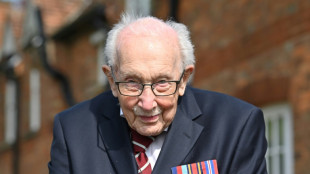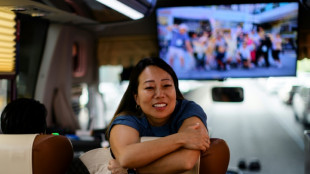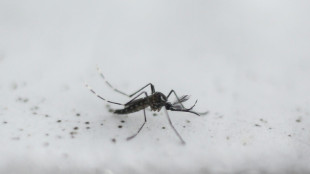

Dutch fete king's birthday, but blunders cast a pall
People across the Netherlands came out to celebrate King Willem-Alexander's 55th birthday Wednesday, as the royal family works to recover its popularity following a string of blunders during the pandemic.
Tens of thousands of revellers sporting quirky orange outfits and hats took to the streets across the country, in the first such event since the coronavirus pandemic started two years ago.
Despite the spectacle however, a series of blunders by the Dutch royals during the crisis have cast a pall over festivities -- mistakes that have pushed their popularity to all-time lows.
Current affairs programme Eenvandaag on the NPO public broadcaster reported its findings over the weekend.
The king had been "invisible" during the start of the coronavirus pandemic, they told the pollsters.
In October 2020, the royals were forced to cut short a holiday to Greece following an outcry when the media reported its details.
Feelings were running high in part because the Netherlands had just gone into a partial lockdown.
Then in December last year, the royal family admitted it had been a mistake to invite 21 people to celebrate the 18th birthday of Princess Amalia -- the future queen.
At that time, people in the Netherlands were only allowed to receive four guests above the age of 13 in their homes.
- King 'doesn't learn from mistakes' -
Although the royal party was held outdoors, Willem-Alexander later informed Dutch Prime Minister Mark Rutte that "on reflection it was not a good idea to organise (the gathering)".
But the pollsters for Eenvandaag noted: "A perception has risen that the king doesn't learn from his mistakes and doesn't have a feeling for what's happening to ordinary Dutch citizens.
"People blame him for that."
"We all had a hard time with the coronavirus rules," one of the Eenvandaag survey's panellists wrote.
"But the king thinks they do not apply to him."
"One is only human," another wrote. "But they (the royals) don't seem to think at all."
Saturday's NPO/Eenvandaag poll suggested trust in Willem-Alexander's kingship had fallen to 54 percent in 2022 -- down from 82 percent in 2019.
Confidence in even the most popular royal, Queen Maxima, had dipped to 61 percent from 84 percent in 2019, said the survey of 26,448 respondents.
And an Ipsos poll for the NOS news programme published Wednesday, gave the king 6.7 out of 10 -- down from 7.7 in 2020.
"The royals have made a number of blunders during the pandemic that is now seen back in these figures," Dutch historian Han van der Horst told AFP.
"There is hard work ahead for them to restore their popularity -- and to show that they are in touch with the common people."
- 'Wake-up call' -
The monarch and his family spent "King's Day" visiting the southern Dutch city of Maastricht.
Despite these setbacks, he knows it is unlikely the Dutch monarchy will disappear any time soon.
According to the Eenvandaag survey, 56 percent of people still believe the Netherlands should remain a constitutional monarchy -- as opposed to 36 percent who would prefer to see a republic.
Perhaps unsurprisingly, those on the streets celebrating King's Day were in a forgiving mood.
"The King is just human, like all of us," said 24-year-old George van der Laan in a busy street in The Hague awash with orange.
And the royals themselves have started repairing the damage.
Princess Amalia made headlines in June last year when she gave up her right to a 1.6 million euros ($1.81 million) annual income until she has finished her studies.
And more recently, Willem-Alexander made available a castle in the central Netherlands to house 32 Ukrainian refugees.
The king himself, asked about the criticism, told the NOS newscaster: "Opinion polls don't impress me that much, but what I do find helpful is constructive criticism."
There was plenty of that in the recent surveys.
Many Dutch argued the royals should be more visible during times of hardship.
They also suggested that they should have advisors on hand to point out to them the obvious bad choices.
"These surveys should serve as a wake-up call," said one Eenvandaag respondent.
P.Meier--HHA



